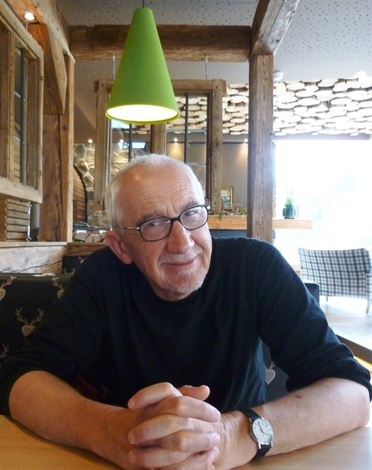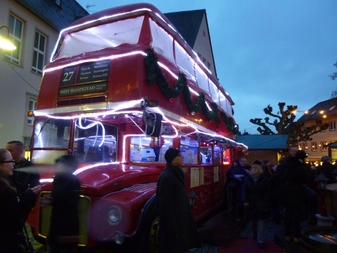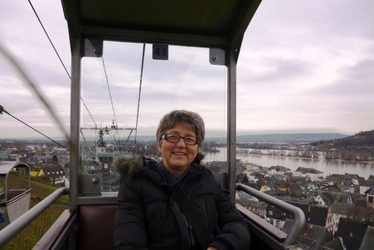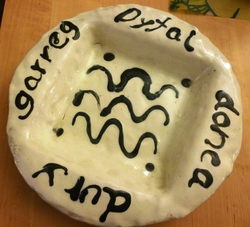
These were all put to the test on Christmas Day. Our son and daughter-in-law-to-be had come over for a jolly Christmas breakfast, and later we'd driven down to Hastings to visit my Mum and collect one of my brothers to stay over. Martin had left the majority of a beautifully-cooked (by his own fair hand!) turkey crown to cool in the oven. It would go in the fridge later ready for our Boxing Day friend-and-family lunch.
We got back home early evening, and while Martin parked the car, my brother and I went into the house. We were all hungry and all I could think about was getting the pizzas on. Martin took a good ten minutes to find a parking space, but when he walked into the kitchen he immediately spotted the oven was pre-heating, quickly whipped out its contents, now heating up nicely, and said, "Don't you think it's a good idea to remove the turkey before turning on the oven?"
Well, the old man let me off lightly - just this initial barb of exasperated sarcasm (and, later, a degree of good-natured ribbing). But I suspect the man's good nature may have been over-stretched if we hadn't stashed the carefully prepared 4 kg honey-glazed gammon in the fridge. We fought with our consciences before quickly coming to the conclusion that we could not feed a potentially lethal partially re-heated turkey to our loved ones the next day, and, being fortunate enough to have a local branch of a well-known supermarket nearby, were able to buy a replacement cold cooked chicken.
If you require further proof of his forgiving ways -
Some years back, when we had a very large vegetable patch in our former home, and our gardening bible was Geoff Hamilton's Successful Organic Gardening, Martin laboured long and conscientiously to raise a wide selection of good things for the family table. He had gone up to London one day for a television casting, and I thought I would be a good woman and clear the brassica patch for him. I cheerfully dug up the tattered remains of the Brussel-sprouts, cabbage etc, and then went on to the next row of plants. As I was hacking them into manageable pieces ready for the compost, I thought to myself, 'Well, I don't know, this stuff looks good enough to eat...", but nobly carried on with a determined will. Sgt Johnson, serving ranker in the gardening corps, nothing if not thorough.
Martin appeared late afternoon, home from the Smoke.
"Look," I said, beaming, "I've cleared the brassicas!"
"Oh, good," said Martin, looking round. "Erm, where's the purple sprouting broccoli?"
Yes, folks, I'd bashed the just-about-ready-for-the-table crop of this delicious vegetable to bits. That which my husband had grown from seed, thinned out, transplanted, de-slugged, tied up, and weeded over a period of months ... and he didn't even shout at me!




 RSS Feed
RSS Feed
